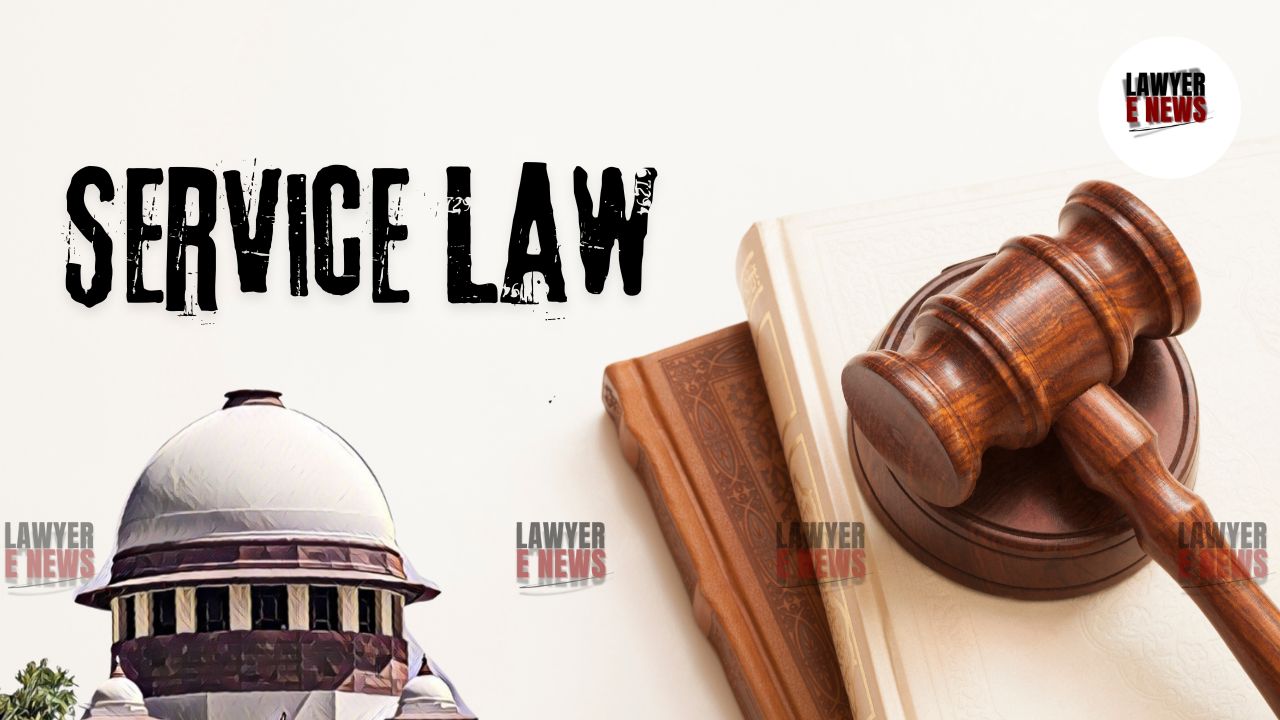-
by Admin
15 February 2026 5:35 AM



Supreme Court of India, in Union of India & Ors. vs. Doly Loy (Civil Appeal No. 8387 of 2013), ruled that the mere sanction for prosecution cannot justify the adoption of the sealed cover procedure for withholding an officer’s promotion. The Court upheld the Delhi High Court's decision, ordering the Union of India to promote the respondent, an Indian Revenue Service officer, after determining that no formal criminal charge was pending at the time of the promotion review.
Doly Loy, an Assistant Commissioner of Income Tax since 1987, was promoted to higher positions until an FIR was filed against him on December 31, 2001, accusing him of corruption during his tenure as Special Secretary (Finance), Government of Arunachal Pradesh. Subsequently, a Departmental Promotion Committee (DPC) convened in February 2007 to consider Loy’s promotion to Commissioner of Income Tax. However, the committee opted for the sealed cover procedure, keeping his promotion on hold due to the pending investigation.
Loy challenged this decision before the Central Administrative Tribunal (CAT), which ruled in his favor, instructing the government to open the sealed cover. The Union of India’s subsequent appeal to the Delhi High Court was dismissed. The government then approached the Supreme Court, contending that the sealed cover procedure was valid based on the FIR and the sanction for prosecution granted in June 2006.
The key legal question was whether the mere grant of prosecution sanction without the issuance of a formal charge-sheet justified the adoption of the sealed cover procedure, which delays promotion until the conclusion of pending disciplinary or criminal proceedings.
The Union of India argued that once an FIR and a prosecution sanction are in place, sealed cover procedures should be applicable, as outlined in the Office Memorandum (OM) dated September 14, 1992. The OM permits sealed cover procedures for government servants under suspension, those with pending disciplinary proceedings, or those under prosecution for a criminal charge.
In contrast, Loy argued that since no charge-sheet had been filed at the time of the DPC meeting in February 2007, there were no formal criminal proceedings against him, and his promotion should not have been withheld.
The Supreme Court closely examined the legal framework, including the 1992 OM and the precedent set by Union of India v. K.V. Jankiraman (1991), which clarified that the sealed cover procedure is permissible only when a charge-sheet in a criminal case or a charge memo in disciplinary proceedings has been issued.
“The sealed cover procedure is to be adopted only after the charge memo/charge-sheet is issued. The pendency of investigation or mere grant of prosecution sanction does not meet this threshold,” the Court emphasized.
The Court noted that in this case, the FIR had been lodged in 2001, the sanction for prosecution was granted in June 2006, but the charge-sheet was only filed in October 2008, well after the DPC convened in February 2007. Since no formal charge-sheet was pending at the time of the DPC, the Court held that the sealed cover procedure was improperly applied.
The Court referred to the OM dated November 2, 2012, which further clarified that sealed cover can only be applied once a charge-sheet or charge memo is issued, reiterating the principle established in Jankiraman.
The Supreme Court dismissed the appeal by the Union of India, confirming that the sealed cover procedure was wrongly applied to Doly Loy’s case, as no criminal charge-sheet had been filed when the DPC met. The Court ordered the opening of the sealed cover, which had deemed Loy “fit” for promotion. The ruling directs that Loy be promoted retroactively and awarded back pay as per the earlier CAT order. This judgment reaffirms the legal standard that mere investigation or prosecution sanction does not justify withholding promotion.
Date of Decision: September 24, 2024
Union of India & Ors. vs. Doly Loy
